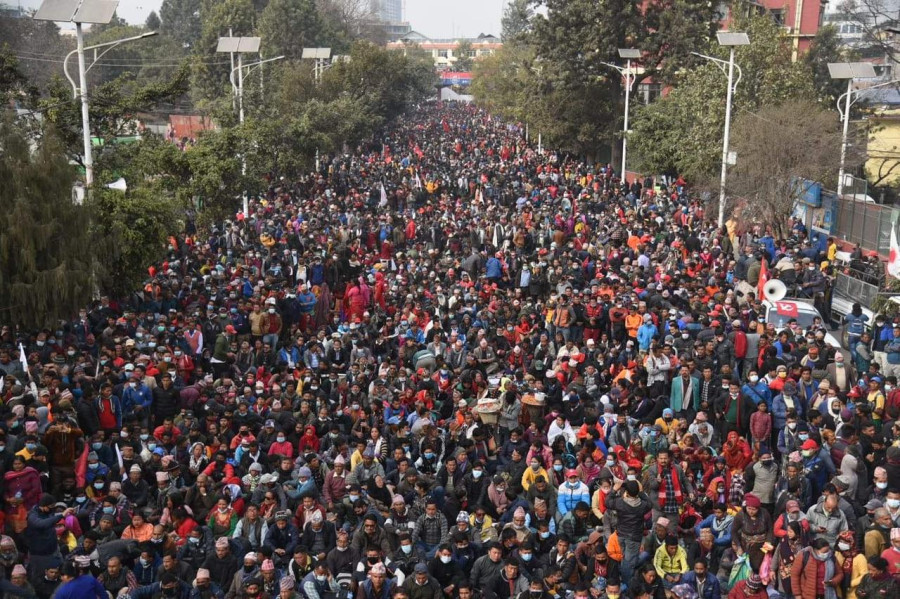Editorial
Day trippers
Organisers and demonstrators must be mindful that the risk of coronavirus transmission looms large.
It’s starting to feel like a routine. Hundreds of buses filled with thousands of protesters stream into Kathmandu Valley from across the country every week. They participate in citywide demonstrations and public assemblies, either in support of Prime Minister KP Sharma Oli or to protest his dissolution of the House of Representatives, and quickly return.
What is being organised as a 'show of strength' by the Oli faction of the ruling Nepal Communist Party or the rival faction led by Pushpa Kamal Dahal and Madhav Kumar Nepal has become a nuisance for the general public. The demonstrations disrupt the people’s everyday lives and bring the city’s traffic to a standstill—not to forget that all this is happening amid a deadly pandemic.
The turnout at these demonstrations has also been massive. Thousands of people march towards designated assembly points at the centre of the capital from the periphery, much to the misery of the general public which is gradually trying to see some normalcy in their lives after months of uncertainties and fear. But not everyone attending these protests is here for the cause.
Some of the protestors have been promised free rides and meals by the organisers while for some, it is an opportunity to make a quick all expenses paid trip to Kathmandu and meet relatives and friends or to take care of errands. For some, it is their first time in Kathmandu, and an opportunity to visit religious sites while many don’t even know why they are here.
This concerns epidemiologists and infectious disease doctors about how these mass gatherings amid the pandemic could escalate the Covid-19 situation in the country. Protesters, packed like sardines in overcrowded buses and at assembly venues, have their guard off as organisers do not adhere to public health protocols during the protests. There is no proper usage of masks and people hoot and cheer together as the leaders berate their opponents.
Equally vulnerable are the security personnel who are mobilised during these mass gatherings, which are in sharp contrast to the world adopting stringent measures to curb infections and fatalities as the threat of new variants and vaccine drives go hand in hand. Protests are a necessary and inalienable right of the public, but organisers and demonstrators need to be mindful that despite fewer cases and fatalities, the risk of an outbreak looms large. Foremost, politicians must develop a conscience to stop sacrificing people’s interests to serve their interests.
As old as it can get, the deceptive card employed by politicians to show that they have public support, time and again is only an epitome of false assurances, or we wouldn’t be here in this quagmire, six years after the constitution which guaranteed political stability was promulgated. Fooling the general public might serve the temporary cause of political opportunists; but the way both factions currently pursue a foolhardy path to push their interests by mobilising their cadres and innocent people, it will only invite further polarisation and confrontation.




 13.12°C Kathmandu
13.12°C Kathmandu














